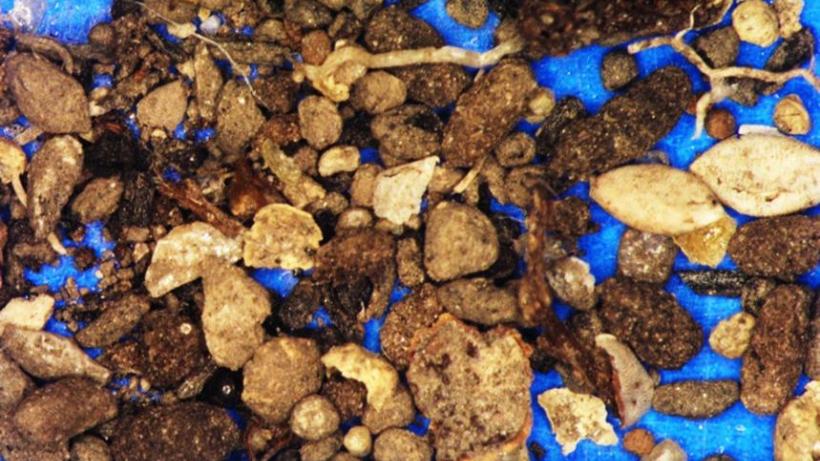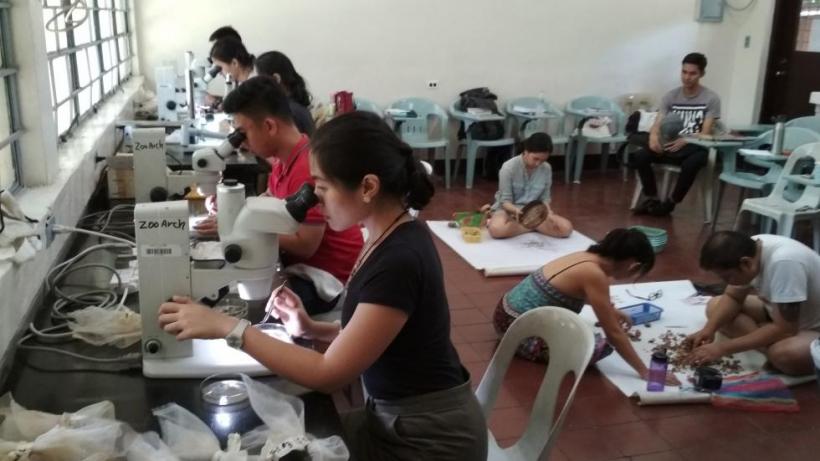The Plants and Sediment Laboratory (PS Lab) is a research and teaching laboratory dedicated to the study of botanical materials and sediment from archaeological and palaeoenvironmental sites. The PS Lab houses a small reference collection of contemporary seeds, vines, wood and parenchyma tissues. This collection, in the form of dry and charred specimen as well as digital images, facilitates the identification of plant remains recovered from archaeological sites. The collection started in 2001 and currently includes 381 species of seeds from 62 families, 102 species of wood from 38 families, 78 species of woody vines from 28 families and 8 species of tubers comprised of 27 individuals from 24 populations.
Aside from reference books, sieves, digital weighing scale and other materials, the lab is equipped with two low-power stereomicroscopes and a polarizing microscope that are currently used for sorting macrobotanicals recovered from different archaeological sites. Since archaeobotanical remains are altered when recovered in archaeological contexts, the modern comparative reference is useful. Identification of archaeobotanical remains is critical in understanding past subsistence and paleoenvironments, among others, but mainly it serves in comprehending human-plant relationships in the past.
Heads of PS Lab
Armand Mijares
Victor Paz
Current Projects
Callao Cave Archaeological Project
Palawan Island Palaeohistoric Research Project


